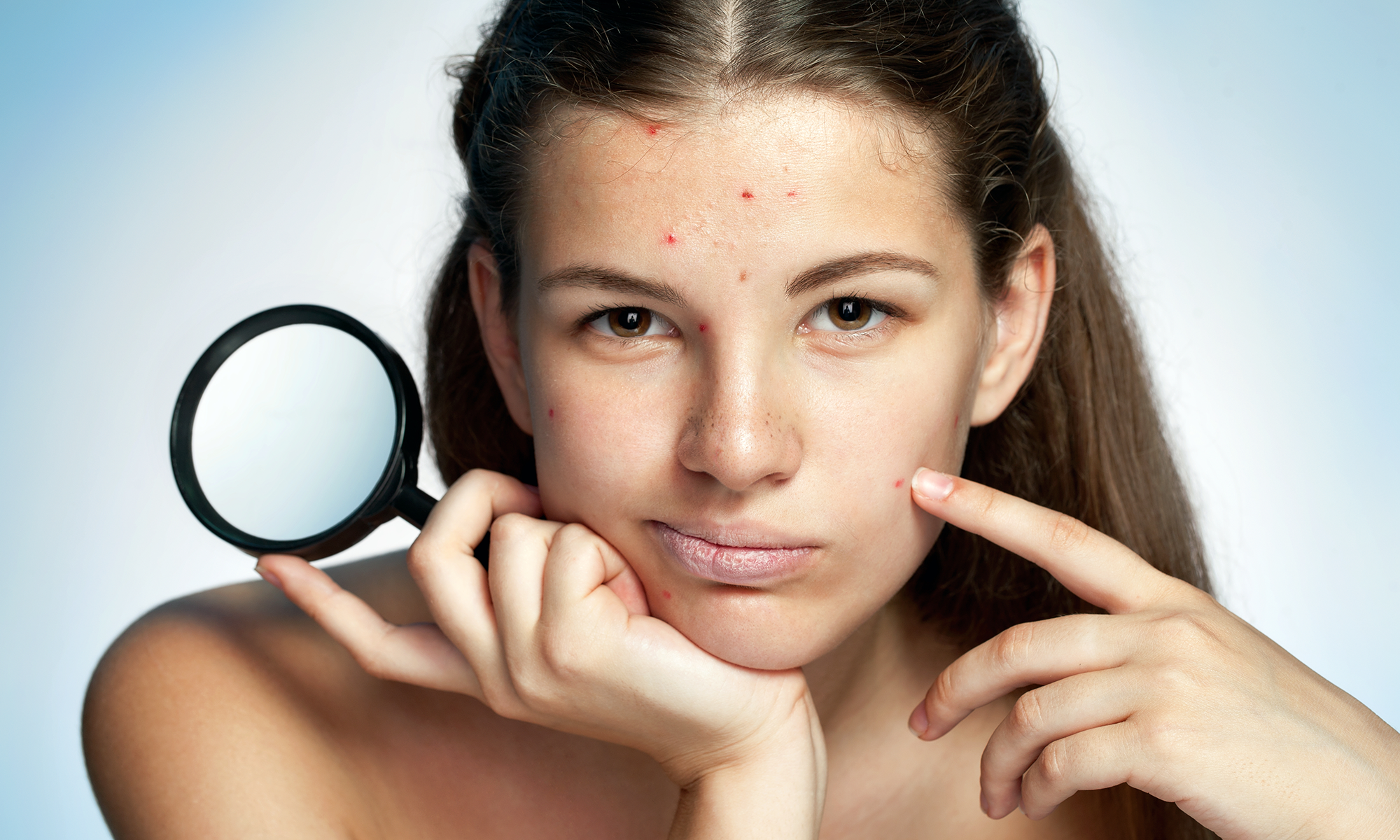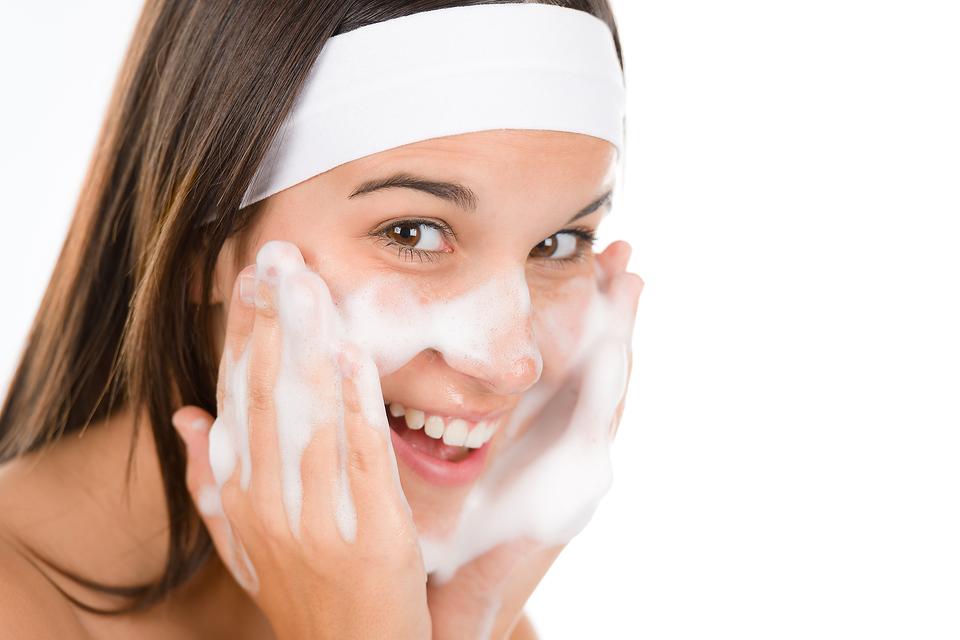
The four main types are normal, dry, oily, and combination:
- Normal Skin Care
- Dry Skin Care
If you have dry skin, wash your face daily with a mild cleanser. This will help prevent your skin from becoming drier. Moisturize with a non-perfumed, non-alcohol-containing lotion after washing. Also, limit very hot showers, high temperatures, and low humidity, which rob your skin of moisture. Even using soap and excessive washing or scrubbing of the skin increases dryness. Many teens have drier skin during the winter months, when humidity is low and heaters force hot, dry air into enclosed rooms.
- Oily Skin Care
Many teens know that acne in itself creates added stress! To keep oily skin clean, wash your face a three times a day with plain soap and water. If you need to cleanse your face at school, use an over-the-counter cleansing pad that helps dissolve oil and removes excess dirt from the skin surface. If you have pimples, never pop or squeeze them, which can spread the inflammation, worsen acne, and even cause scarring. Use cosmetics and other facial products that are "noncomedogenic," meaning they do not clog pores. Keep your hair off your face, and wash your hair daily to reduce oil.
- Normal/Combination Skin Care
With normal/combination skin, you might have an oily "T-Zone" (forehead, nose, and chin) and dry skin elsewhere. The pores on your face are large, and the skin tends to have blackheads.
Normal/combination skin can be either overly dry or excessively oily, while cheeks may appear rough. Depending on the time of year, the oiliness and dryness can change, too. The skin is usually drier when the weather is cold.
If you have normal/combination skin, wash your face two or three times a day with plain soap and water to remove the excess oil. Moisturize dry areas, but not oily areas.
4 Simple Steps to Healthy Skin.
- Cleanse
- Hydrate/Moisturize
When you hydrate your skin, you simply add water, such as when washing your face or taking a bath. To moisturize your skin, you add water, oil, or both.
For most skin types, you should moisturize skin morning and evening, using a moisturizer that does not aggravate a skin problem.
- Treat
Many teens need to treat skin conditions such as acne, which occurs when pores on the surface of skin become clogged. This happens when oil glands produce too much oil, and pores get blocked with dirt, bacteria, and debris. Sometimes, moisturizers and greasy cosmetics contribute to the development of acne. Oils or dyes in hair products can worsen acne by blocking pores. While soaps and astringents remove oil from the skin, they don't alter the oil production. Scrubbing the skin sometimes causes irritation, which triggers acne instead of resolving it.
- Protect
After cleansing your skin, protect it daily from the sun and other environmental factors. Use a moisturizing sunscreen with zinc oxide (at least 7%) and a SPF 30 for UVA and UVB coverage year-round. Wearing sunscreen with protective clothing, such as long-sleeved shirts, pants and wide-brimmed hats, while avoiding the sun's peak ultraviolet rays (from 10 a.m. until 2 p.m.), may provide some protection against premature aging and skin cancer.
Health and Beauty tips
2200 SW 16 ST Suite 224 Miami, FL 33145
Please “like” & share! Thank you!
I hope you’ve found some of my tips helpful!
FOR LIVE ACTION, FOLLOW ME ON SNAPCHAT: lizskincare
INSTAGRAM: lizskincaremiami
INSTAGRAM: lizskincaremiami
BEST SKINCARE WISHES LIZ SKINCARE





No comments:
Post a Comment